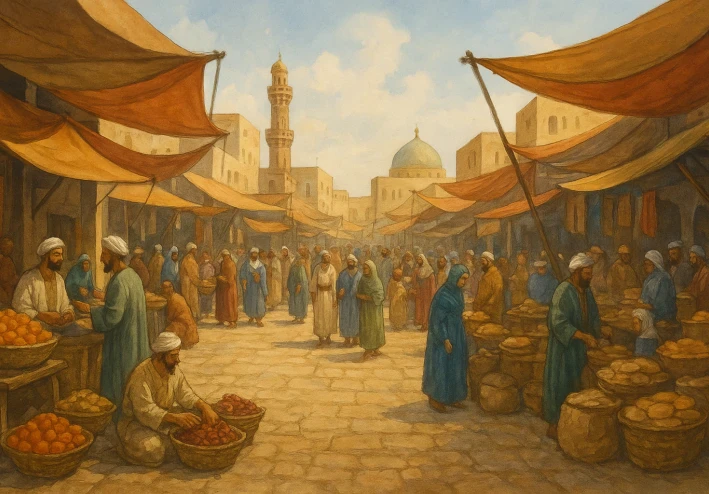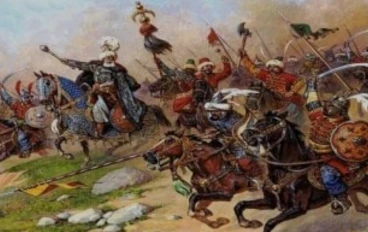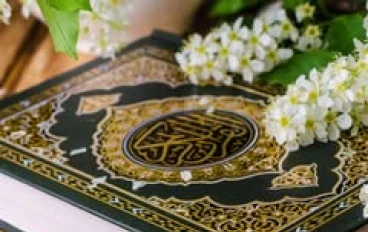
The Honest Merchant of Medina
The Honest Merchant of Medina
In the vibrant city of Medina, trade flourished under the golden Arabian sun. Merchants from distant lands crowded the marketplace, their stalls overflowing with spices, grains, and dates. Among these merchants was a humble young man named Umar. He had recently inherited a small stall from his late father, along with a few sacks of dates and wheat. Though his means were limited, Umar’s heart was filled with sincerity and faith. He vowed that his trade would never be tainted by dishonesty or greed.

Each morning, Umar opened his stall early, arranging his goods neatly. Unlike some who mixed old dates with fresh ones, Umar kept his stock pure. He recalled the words of Prophet Muhammad (peace be upon him): “The truthful and trustworthy merchant will be with the Prophets, the truthful, and the martyrs on the Day of Judgment.” These words stayed in his mind like a guiding light. When customers approached, he weighed fairly, even adding a little extra to ensure justice.
Days turned into weeks, and Umar observed the practices of other merchants. Some concealed defects in their goods; others tampered with weights to gain extra profit. Their wealth grew quickly, and temptation whispered in Umar’s ear: “Follow their ways, and you will prosper.” But Umar silenced the thought, reminding himself, “My sustenance comes from Allah alone. I will never betray the trust of those who buy from me.”
One afternoon, a wealthy man arrived in the marketplace seeking dates for a grand feast. Stopping at Umar’s stall, he admired the fresh, plump dates. “I need a large quantity,” he said, “and I’ll pay a fair price.” Umar agreed and began measuring the dates. As he filled the baskets, he noticed a few spoiled dates among the good ones. He could have hidden them without anyone noticing, but his heart trembled at the thought. Gently, he removed the bad dates and said, “These are not worthy of your table, so I will not include them.”
The merchant looked at him in surprise. “You could have left them in, and I would never know,” he said. Umar smiled and replied, “Perhaps you would not know, but Allah would know.” These words struck the man deeply. Impressed by Umar’s honesty, he paid generously and promised to tell others about this trustworthy merchant.
Soon, news of Umar’s integrity spread throughout Medina. People flocked to his stall, knowing he would never cheat them. His small business grew, and his profits increased. Yet, Umar remained humble. Each night, he thanked Allah for His blessings and prayed for steadfastness. He did not let wealth corrupt his heart. Instead, he used his earnings to help the needy, support orphans, and provide for travelers.
Years later, Umar became one of the most respected merchants in the city. When young traders sought advice, he would say, “Honesty brings blessings. Do not sell your faith for a handful of gold, for gold fades, but the reward of Allah remains.”
The story of Umar, the honest merchant of Medina, lived on for generations as a shining example of how trust in Allah and adherence to truth lead to both worldly success and eternal reward.



































